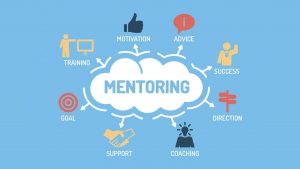The ROI of Investing in Relationships
Contributed by guest blogger:
Andrea Meltzer, Co-Founder/CEO, Compatibility, LLC.
While one’s resume may open the door to landing a dream place of employment, will the acceptance indicator (the “yes”) be predictive of long-term engagement, persistence and success? The answer may surprise you.
The decision to accept an employment offer is likely the first time the applicant feels “seen” and important to the organization – a welcomed member within a new community…tentatively.
Why tentatively? Let’s consider that when an employee accepts a job offer, what does the offer or the “yes” really mean? “Yes, you fit?” or “Yes, you can try.”
Will the employee’s decision to persist be solely their responsibility, or might the organization be accountable in some way to deliver on that “yes”? Think relationship.
Without the context of relationship, here is what “yes” may really mean. This shared “yes” may represent a temporarily aligned event, specifically, an agreement to give it a try.
Through the relationship lens, perhaps the next step is setting mutual expectations in this newly committed relationship.
Both parties will have ongoing needs and expectations. In order to thrive, people must continuously feel seen, heard and valued.
Since it is unlikely that the organization can reach out to every employee to continuously reassure them that what’s important to them is also important to the organization, the organization must discover a way to ensure the employee feels and knows they matter. According to Gallup, when a manager understands and focuses on specific areas that motivate the employee, there is reason to believe the employee is more likely to be engaged.
What if the talent pool within the community is actually the strongest internal resource towards retaining talent? What if the best resources a company can invest in are employee relationships?
Interestingly, employees who are supervised by highly involved managers are 59% more likely to be engaged; whereas, engagement is believed to drop to drastically low levels (2%) on teams that involve managers perceived to ignore team members.
Therefore, when it comes to welcoming a new hire into the organizational community, perhaps the best gift that can be provided is that of a promise to be integrated into the social fabric of the system. Ensuring the employee is always connected to a key developmental other, such as a mentor or sponsor, may help alleviate and even address concerns related to other aspects of the commitment. While one’s experience, skills and competencies likely helped land this dream job, the human factors will determine if and how the employee chooses to persist.
Ask a long-term employee to talk about their overall experience. It’s likely you will hear more about people, the organization’s commitment to them, or great mentors they’ve had. It’s unlikely they will attribute their decision to remain because of their expertise.
Creating relationship expectations that begin from the first “yes” lends to best practices in retaining talent. Similar to any relationship, attending to the relational experiences of the employee is critical to the long-term success of both parties.
Relationships Matter. #mentoringmatters





